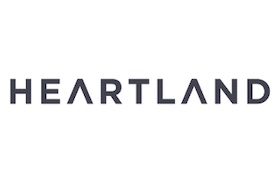Heartland has revolutionized plot mapping technology to drive efficiency for farming operations across the world. Their ReMap technology (www.heartland.io/remap-farming-plot-map-online/) will reduce the time, money, energy, and carbon footprint required to farm.
The traveling salesman is a famous mathematical problem that focuses on finding the fastest route between multiple locations. This is a universal problem that can help optimize logistics networks across land, air, and sea. Solving this problem opens the door for Heartland to run mathematical calculations that have never been possible.
With a mathematically perfect plot map, farmers can ensure a reduction in fuel consumption, maintenance costs, and the time necessary to complete their planting, harvesting, and scouting. ReMap is a technology solution to a problem that farmers have faced for more than 12,000 years.
Heartland recently received a $360,000 USDA grant for soil health, carbon sequestration, and regenerative agriculture. This kickstarted a desire for Heartland to drive efficiency across the greater agriculture industry.
Heartland is sitting at the intersection of regenerative farming and sustainable manufacturing. ReMap technology will become a foundational tool to help Heartland drive the adoption of green chemistry across industries.
“Heartland’s team is exploring the different applications of this computing technology to drive new material innovations.” Says Heartland CEO, Jesse Henry. “This technology allows us to create never-before-seen solutions in agriculture, manufacturing, chemistry, and advanced materials.”
Today, Heartland engineers hemp fibers as additives for plastics. The company is working with America’s largest manufacturers and suppliers to integrate high-performance carbon-negative plastic additives into everyday products. The commercialization of Heartland’s biomaterials will allow companies to predictably reduce their carbon footprint without compromising strength, weight, or price.
Heartland’s vision is to become earth’s most sustainable company. Their desire to create efficiency in hemp fiber and the greater agriculture industry has gone far beyond carbon sequestration. Heartland is developing the technology and insurance products to ensure that hemp can be efficiently grown, processed, and utilized.
Creating standards in agriculture technology, insurance, and finance will help to unlock the global distribution of commodity hemp materials. ReMap is a first-of-its-kind agriculture technology that solves an optimization problem from 1930.
“There are mathematical problems that scientists and engineers don’t even bother trying to solve because they are too complex and require too much computation.” Says Tim Almond of Heartland, “This will allow them to solve those problems with ease.”
Large companies are spending billions on new innovations, but they are limited by the amount of time and computing power it takes to run calculations and simulations. The math behind Heartland’s plot mapping technology can help those companies solve these same problems in seconds.
Today, Heartland’s hemp additives are driving sustainable material innovation for many of America’s largest manufacturers and suppliers. Heartland’s technology breakthrough helps them develop a platform that solves some of the most impactful problems for the biggest companies.
About Heartland
Heartland is a material innovation company that engineers hemp fibers as additives for plastics. Heartland’s additives help manufacturers exceed their sustainability mandates without compromising cost and performance. As an industrial hemp material processor, they work with farmers, manufacturers, and their suppliers to commoditize high-performance carbon-negative additives that can be used across various raw material supply chains. Heartland’s products help companies manufacture using stronger, lighter, cheaper, and more sustainable materials. For more information, visit https://www.heartland.io.
















